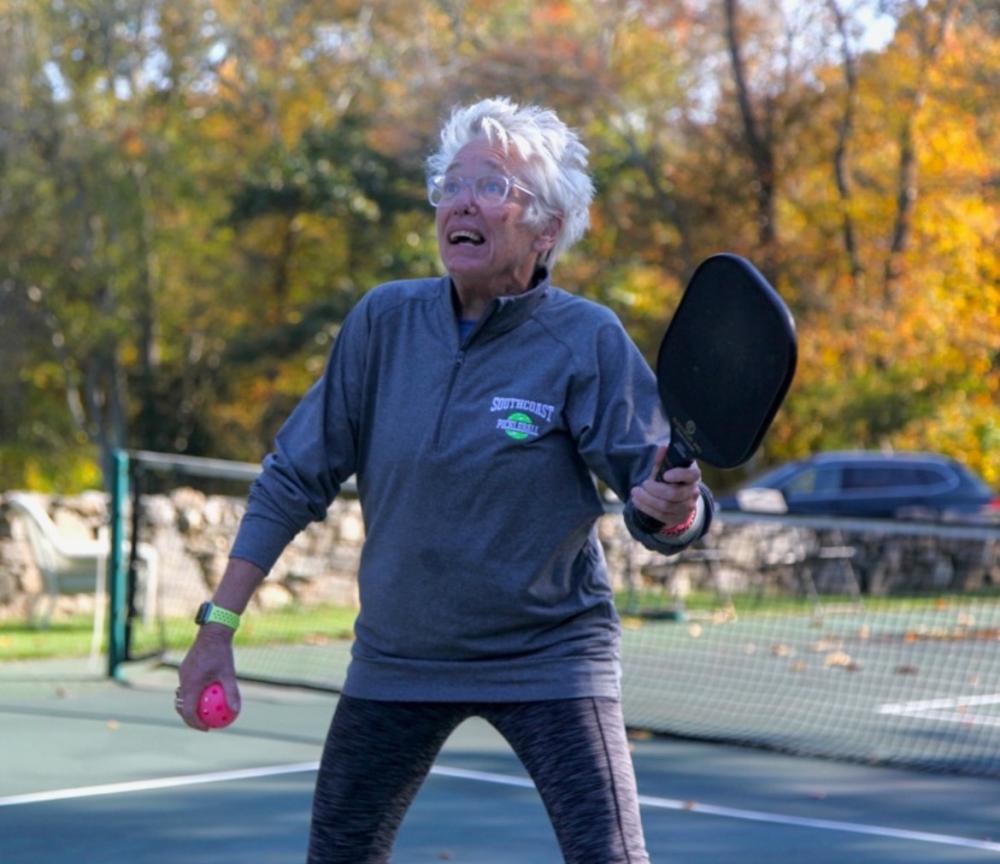‘Why isn’t life more like pickleball?’: Local author publishes guide to the growing sport
Author Erin McHugh plays pickleball nearly every day. So when she ended up with her hand in a cast last year, there was only one thing left to do: write a book about pickleball.
“It was a deus ex machina,” said Chris Tomasino, McHugh’s agent. “And then of course she learned to play with her other hand.”
“Pickleball is Life” is McHugh’s 31st book. The Dartmouth native has written fact books, a memoir, quote books, tour guides and books for and about the LGBTQ community. She said some books can take weeks or longer to sell to publishers, but the pickleball book she sold overnight.
The colorful 150-page book is mostly an educational guide, but it also features a look at pickleball’s humble origins, recipes for pickle juice cocktails, a guide to pickleball player archetypes and a “list of lies to tell to get out of something and play pickleball instead.”
McHugh grew up in Dartmouth, but lived in New York City for 42 years, where she worked in publishing before becoming an author herself. Once she returned to Dartmouth, a friend took her out to play pickleball for the first time on a temporary court, and she was immediately hooked.
Pickleball, often called the fastest-growing sport in America, is a variation on tennis in which two or four players hit a ball comparable to a Wiffle ball over a net using solid paddles. It’s played on a smaller court than tennis.
McHugh said the pandemic was partially responsible for pickleball’s “exponential” growth.
“Everything was empty so you could go anywhere and build the court anywhere,” she said.
McHugh carries a net and chalk around in her car, Tomasino said, so she can set up a game wherever she wants.
McHugh often goes to Fairhaven to play pickleball, where there’s a thriving community through the Fairhaven Pickleball Association. She hopes that with Dartmouth’s six new courts, local players can create a similar group.
She also recently built a court for Our Sisters School, a girls middle school in New Bedford, and the school has since added Pickleball to their physical education curriculum. She’ll never hesitate to invite people to play the sport either, Tomasino said.
In advertising her book over the past six months, McHugh said she most frequently is asked about mental health and wellness related to the sport.
“[For] people my age, it’s incredibly easy and dangerous to let your life start getting a little smaller, incrementally,” McHugh said. “It happens just day by day … and pickleball is a great thing [to prevent] that.”
Pickleball started to gain popularity particularly among older populations, but the average age has dropped in recent years to 38.
“[People] are beleaguered on a lot of different fronts, whether it's financial, political or social,” Tomasino said. “But if you can just have a good time, it’s worth its weight in gold.”
The sport’s growing popularity can be partially attributed to its accessibility, McHugh said, as a new player can learn the game in about a half hour, even if it takes a lifetime to master it.
“Pickleball is life for me, but I’m a crazy person,” McHugh said. “Why isn’t life more like pickleball? It’s welcoming, it’s egalitarian, it’s very near to cost-free and there’s a lot, a lot of laughter.”















